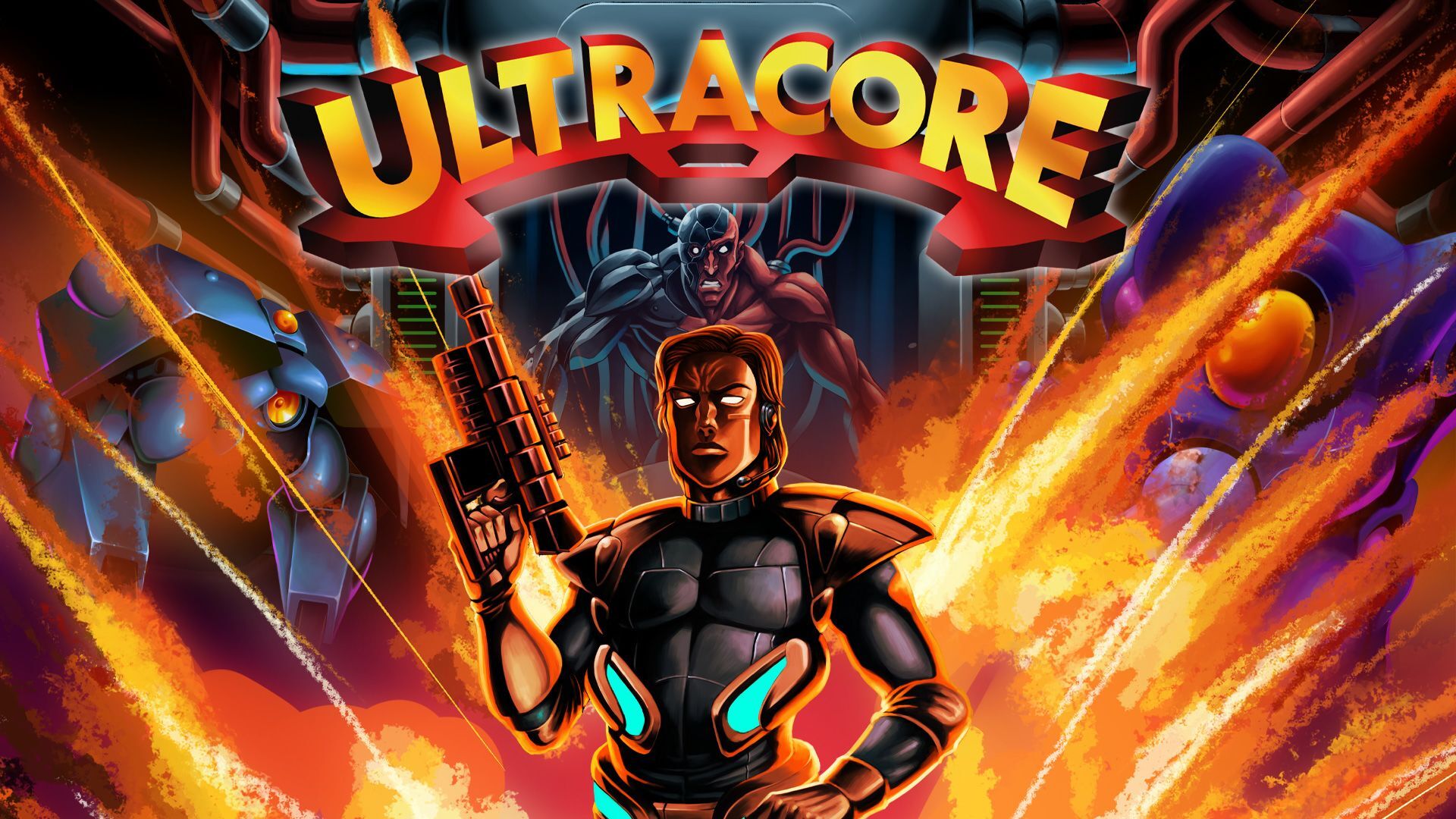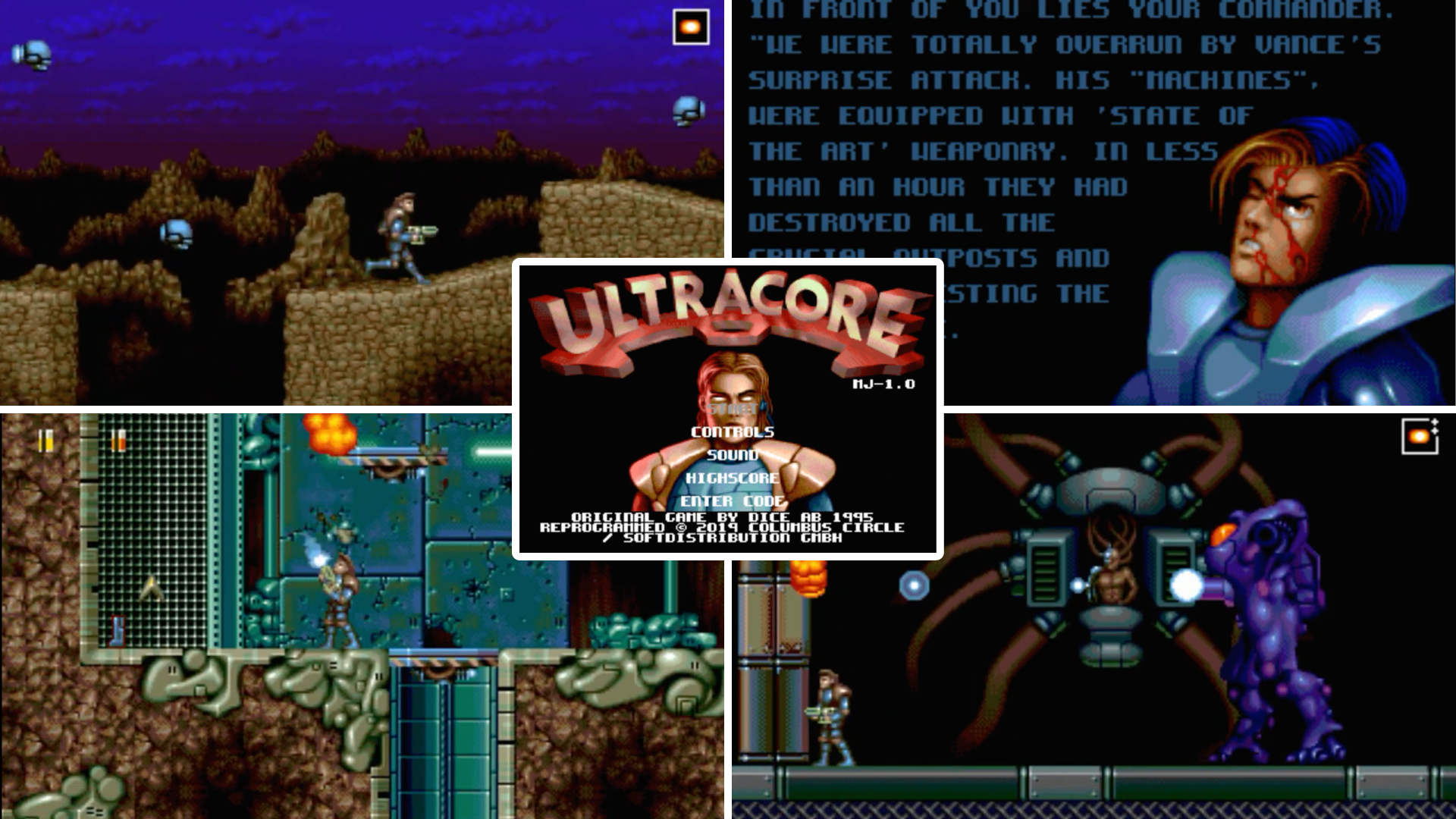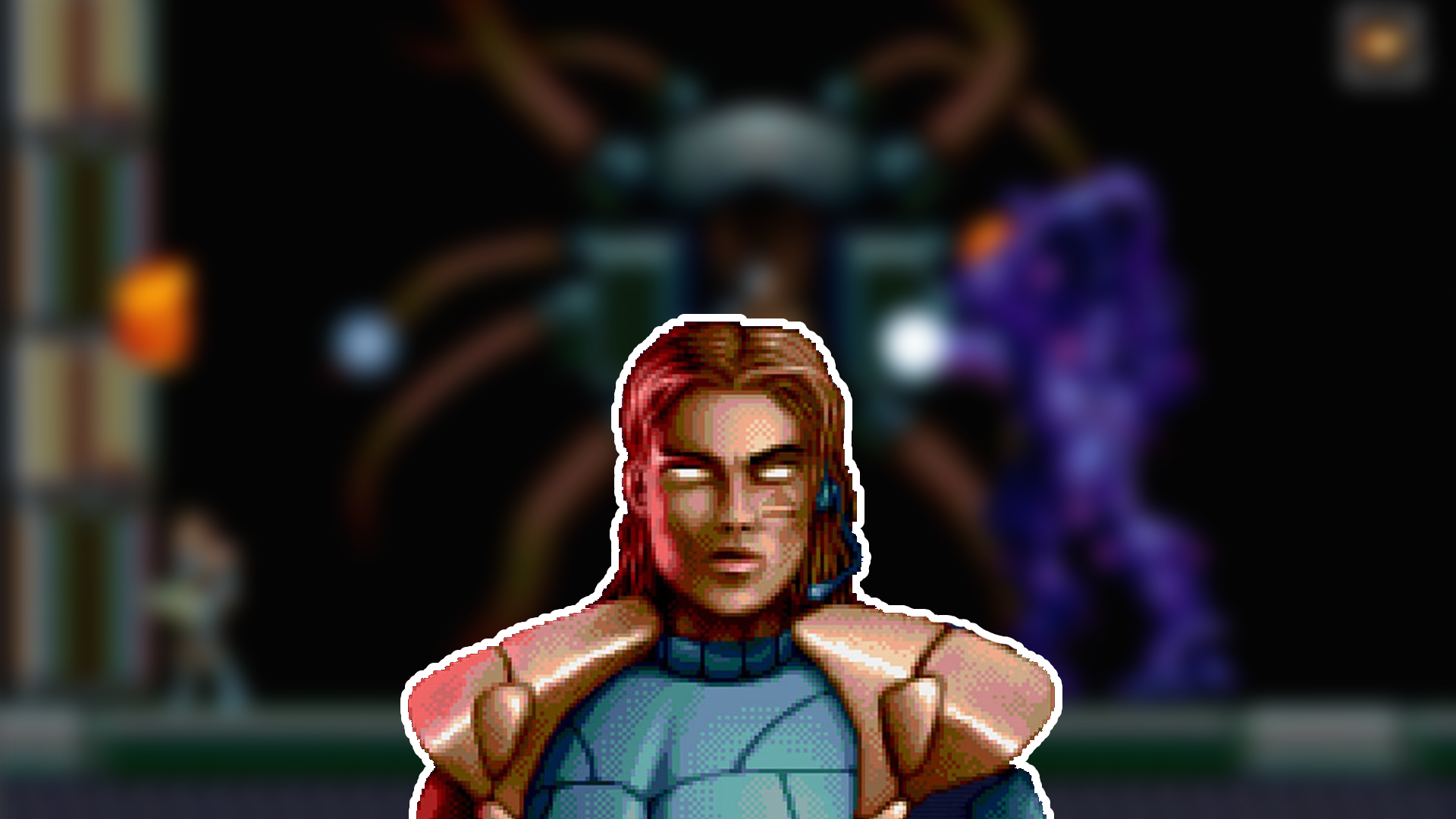From the developers of Battlefield: An ambitious run-and-gun that no publisher believed in for 25 years.

To many modern gamers, Swedish development studio DICE may best be known as "that EA team that makes Battlefield". However, that reputation only took hold after 2006. Before then, DICE produced a surprisingly wide range of titles, beginning with pinball games for the Amiga in 1992.
Amid their sea of low-budget pinball and racing games for 1990s and early 2000s computers, one project stands out: A run-and-gun shooter for the Sega Mega Drive called Ultracore. It could have marked a bold new direction for the studio... If it had met its intended 1994 release date instead of first launching in 2019.
Aiming For Greatness
Ultracore was specifically devised to broaden DICE's creative range, being a technologically advanced run-and-gun. The project, initially titled Hardcore, was envisioned as a showcase of the studio's growing technical and artistic capabilities on the Amiga platforms as well as – for the first time – the Sega Mega Drive, where comparable titles like Contra and Turrican were popular.
The resulting game presents a science-fiction scenario in which the player controls a lone soldier navigating hostile industrial complexes to prevent a military uprising led by a renegade commander. It's played in a side-view action format in which players advance through platforming stages while eliminating robotic enemies and collecting power-ups for their rapid-fire weapon.
Ultracore distinguishes itself from comparable action titles of its era through its emphasis on exploration and spatial awareness rather than purely linear progression. Players must manage limited ammunition types as well as locating hidden passageways and other secrets, using keycards or switches to change progression throughout the respective stages.
New Targets

Despite it being approximately 99% percent finished, publisher Psygnosis unilaterally cancelled the game in 1994, assuming that the upcoming shift to 32-bit consoles (such as the PlayStation) meant a 16-bit side-scrolling shooter would struggle commercially. The decision dealt a heavy blow to DICE's ambitions, who'd only return to the shooter genre with the first Battlefield in 2002.
However, over time, pre-release materials and demo footage of Ultracore surfaced – for example at a Commodore presentation in 2010, where a version of the game was shown by former development staff – which rekindled interest among retro gaming communities as well as at German publisher Strictly Limited Games, who got in contact with the team in 2018.
Eventually, they – in collaboration with original team members – secured the rights and used original Mega Drive development kits to finish and release Ultracore in 2019. It was first included with the aftermarket Mega Drive replica Mega Sg in March before being published on a cartridge compatible with the original system in October and hitting modern platforms in June 2020.
Striking Bull's Eye
Upon the release, critical reviewers generally praised the title's visual presentation and novelty among 90s run-and-gun games, but flagged its punishing difficulty as well as the lack of some modern amenities for the digital releases on modern platforms as drawbacks. Sales-wise, it seems to have fulfilled its modest ambitions as a niche aftermarket game.
The release of Ultracore was welcomed by retro-game enthusiasts who had been aware of the title's long development history and cancellation, viewing the final release as an authentic release that successfully mirrored the gameplay, sound and visual style of other acclaimed run-and-gun titles of the era.
DICE would go on to find their footing in the shooter space following the acquisition of Refraction Games and their in-development Battlefield 1942 in 2000 before later being acquired themselves in 2006. Several founding members went on to pursue other significant roles in the industry, effectively proving that they didn't need Ultracore to succeed personally.


































